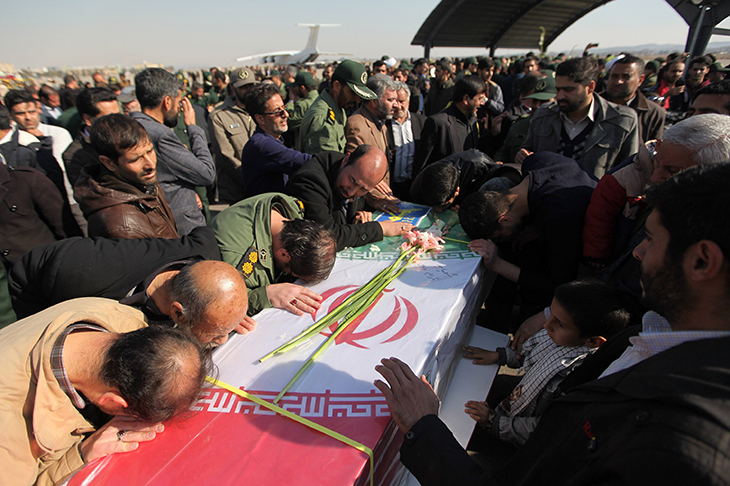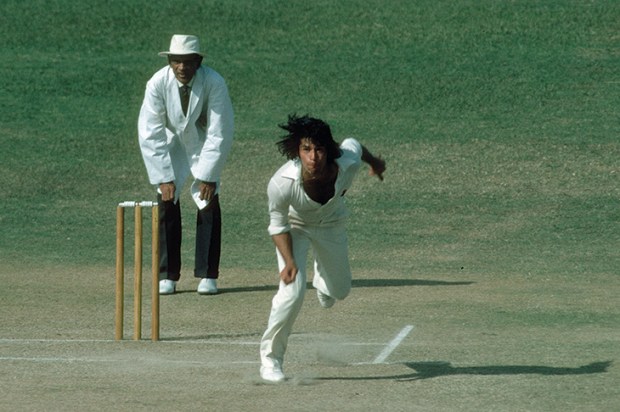Islamabad
Six months into Imran Khan’s premiership and the new Pakistan prime minister has been plunged into his first major foreign crisis.
Last week, a suicide bomber attacked Indian soldiers in Kashmir, killing more than 40 paramilitary troops. Simultaneously, another suicide attack massacred 27 members of Iran’s Revolutionary Guard near the Pakistani border of Iran’s troubled Sistan and Baluchestan Province.
Khan has spent the early months of his premiership attempting to strengthen links with neighbours. He stretched out the hand of friendship to India. He opened the Kartarpur corridor to allow the visa-free passage of Sikh pilgrims. He has warmed up Pakistan’s old alliance with Iran, while working hard to flatter her bitter enemy Saudi Arabia. In a series of whistle-stop tours of the Gulf, he has mended relations with the UAE and even Qatar — a feat pulled off without offending the Saudis. No visits, meanwhile, to Washington or to European capitals.
Until last week the strategy was working. Khan is Pakistan’s most charismatic and outward-looking leader since Zulfikar Ali Bhutto half a century ago appeared to be on the verge of ending his country’s regional isolation and advancing Pakistan’s long-standing dream of becoming a leader of the world’s Muslim nations.
And now these two incidents occur within a day of each other. Iran has pointed the finger at Pakistan for harbouring terrorist groups. And so has the Indian prime minister, Narendra Modi, who says he has ‘incontrovertible evidence’ of Pakistani involvement in the terror attack. Modi says that he plans to ‘completely isolate’ his northern neighbour and has already ended Pakistan’s ‘Most Favoured Nation’ trading status. Further reprisals are likely.
Meanwhile, Pakistan denies any involvement in the suicide attack, reportedly carried out by Adil Dar, a young man from Indian-administered Kashmir.
Modi’s argument is strengthened by the fact that Jaish-e-Mohammed (JeM), a terror group based in the south Punjab, instantly claimed responsibility.
The fact that the JeM is based on Pakistani soil does not mean that it is an instrument of the Pakistani state. It tried to assassinate the country’s former leader Pervaiz Musharraf in 2003 and has been accused in the past, though not recently, of carrying out attacks on Pakistani soldiers. The JeM is capable of acting on its own, without the authority and knowledge of Pakistani army chief General Qamar Javed Bajwa, let alone Khan.
But there are corners of the Pakistan security apparatus who are determined to thwart any attempt by Khan to stretch out an olive branch to India. Whoever was behind this attack has therefore struck a body blow against Khan, while probably inadvertently throwing a lifeline to Modi. A fresh grievance with Pakistan is a priceless gift to this Hindu nationalist as he battles to head off defeat in the forthcoming general election.
The fact is that India is just as ready to cause mayhem in Pakistan as Pakistan has been on Indian soil. Pakistan has presented credible evidence that India has been backing an insurgency in Pakistani Balochistan. A BBC investigation by Owen Bennett-Jones proved that India had, for many years, sponsored the military wing of the Muttahida Qaumi Movement (MQM), the Karachi-based political party known for its extensive use of violence. Tens of thousands of people have been killed due to MQM’s attempts to take control of the city. Britain (which in recent years has tended to favour India over Pakistan) has a role here. The notorious MQM leader Altaf Hussain lives safely in north London. Successive British governments have resisted all attempts from Pakistan to extradite him. These are murky waters.
A different geopolitical dynamic explains the slaughter of Iranian Revolutionary Guards returning from a patrol on the Balochistan border on 14 February. Here responsibility has been claimed by another terror group based in Pakistan, Jaish al-Adl (Army of Justice), which is reportedly supported by Saudi Arabia and also, according to reports which have been strongly denied in Washington, by the CIA.
Some believe it’s too much of a coincidence that Jaish al-Adl’s atrocity occurred just a few days ahead of last weekend’s state visit by Saudi Crown Prince Mohammad bin Salman to Islamabad. The massacre also coincided with a US-led Middle East conference in Warsaw, an event which was explicitly designed to pursue President Donald Trump’s objective of further isolating Iran.
Conspiracy theories abound in this part of the world. Many of them are false, some contain an element of plausibility, and others turn out to be true. It’s impossible to unravel the facts about last week’s two tragedies, except to note that Prime Minister Modi is the main beneficiary and Khan’s diplomacy has been dealt two hammer blows.
There are forces at work — and not just in Pakistan — determined at all costs to thwart the new prime minister’s mission to build a stable country at peace with its neighbours. Khan does not simply need to make peace abroad. He also needs to confront those domestic elements who want to sabotage his international strategy. This problem is not unique to Khan. It also thwarted the efforts of his recent predecessors, all of whom understood the immense economic and foreign policy benefits that would flow from an understanding with India.
In the short term, Pakistan’s new prime minister would send a strong signal to the international community by placing the leader of JeM, Masood Azhar, on a terror list. In the long term, he may yet need to confront Pakistan’s security establishment — a dangerous task, as some previous Pakistan leaders have discovered.
Khan has the courage, talent and will to end his country’s isolation and become a force for good on the international stage, but the obstacles are huge. Meanwhile, there are only two lots of winners from the atrocities last week: the terrorists and their murderous supporters — and Prime Minister Modi, who has just been granted the perfect launchpad for this spring’s elections.
Got something to add? Join the discussion and comment below.
Get 10 issues for just $10
Subscribe to The Spectator Australia today for the next 10 magazine issues, plus full online access, for just $10.
You might disagree with half of it, but you’ll enjoy reading all of it. Try your first month for free, then just $2 a week for the remainder of your first year.














Comments
Don't miss out
Join the conversation with other Spectator Australia readers. Subscribe to leave a comment.
SUBSCRIBEAlready a subscriber? Log in